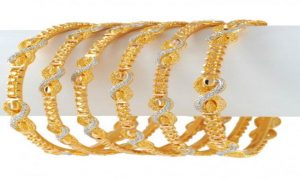Iam sure that I am not alone when I say that credit cards are extremely useful. But now and then, they do get a bad name when misused by a few.
So does it make credit cards evil?
Not at all.
Some feel that credit cards can tempt them into spending more than they should. But if that’s the case, then the problem is with the cardholder and not the card itself.
Recently, I was talking to a young cousin who ‘boasted’ of having seven credit cards. I asked whether these were just for vanity or if he used them as well.
I was shocked to hear that he was using all of them, and that too recklessly. He was overspending and was unable to clear off the full dues every month. A few times he paid the minimum due and a few months when his spends were a ‘bit higher’ (in his words), he skipped paying even the minimum due amount altogether.
This is not uncommon. But the problem (or evil) isn’t the card. Rather, people don’t understand the real devil here.
Read More: Here’s a quick guide to availing a personal loan with just your Aadhaar Card
And that is – the extremely high interest rates of credit cards.
But if you understand this devil well, and the maths behind it, then you can tame it easily.
Don’t be Mad; just pay the MAD
In credit card terminology, MAD stands for ‘Minimum Amount Due’. It is the minimum amount you need to pay before the due date to keep your card account regular. By paying the minimum amount, you avoid the late payment fee and any negative impact on your credit score.
But have no doubt, you still have to pay interest on the outstanding. And I am sure most of you know that interest on credit cards can be almost 40 percent per annum.
Let’s take a very simple example to understand this better.
Suppose your credit card outstanding is Rs 30,000. And the Minimum Amount Due is Rs 1,500.
Now, what are your options?
1. You can pay the full due of Rs 30,000 before the due date
2. You can pay just the Minimum Amount Due of Rs 1,500 before the due date
3. You pay nothing (never choose this option, please)
Here is what happens in each case:
1. No interest is to be paid as you cleared all the dues and there are no outstanding on the due date
2. Interest (for the month) will be charged on Rs 28,500 (Rs 30,000 – Rs 1,500)
3. Interest will be charged on the full Rs 30,000. Plus, a late fee will be applicable since you failed to pay even the minimum amount due (Rs 1,500)
Read More: How to keep your UPI payment safe? SBI shares 5 tips
Cardholders often mistake that paying the minimum amount due is sufficient. It is not. I repeat – it is not. You definitely avoid the late payment fee that way. But you will still be charged high interest on the outstanding amount.
And that’s not all.
If you don’t pay the card in full, you will not get the interest-free credit period for the later transactions till you do so. And this is what kills credit card users financially.
Let’s continue with the earlier example.
Suppose after you get a bill of Rs 30,000, you only pay the minimum of Rs 1,500. That leaves Rs 28,500 outstanding.
Now, if you make a credit card spend again, let’s say, of Rs 15,000 after the due date, you will not get even one-day interest-free period. You will be charged interest on that from the first day itself after the transaction and not the next bill’s due date.
So you get charged more interest on Rs 28,500 (original outstanding) + Rs 15,000 (new spend) + interest from previous outstanding.
Is there a trick/hack around all this?
My primary suggestion would be never to get into hacks like revolving credit card usage, maintaining multiple cards, etc., in order to get longer interest-free periods that many influencers promote these days. Instead, keep things simple and make sure you pay the card bills in full. Not just the minimum due or even one rupee less than the bill amount. If you find it tough to control the urge to spend, then cut the use of cards. Try following simple rules like ‘If unable to afford to buy something in cash, then I will not buy it using my credit card’ OR use your credit card like your debit card. Spend only what you can clear off immediately.





































